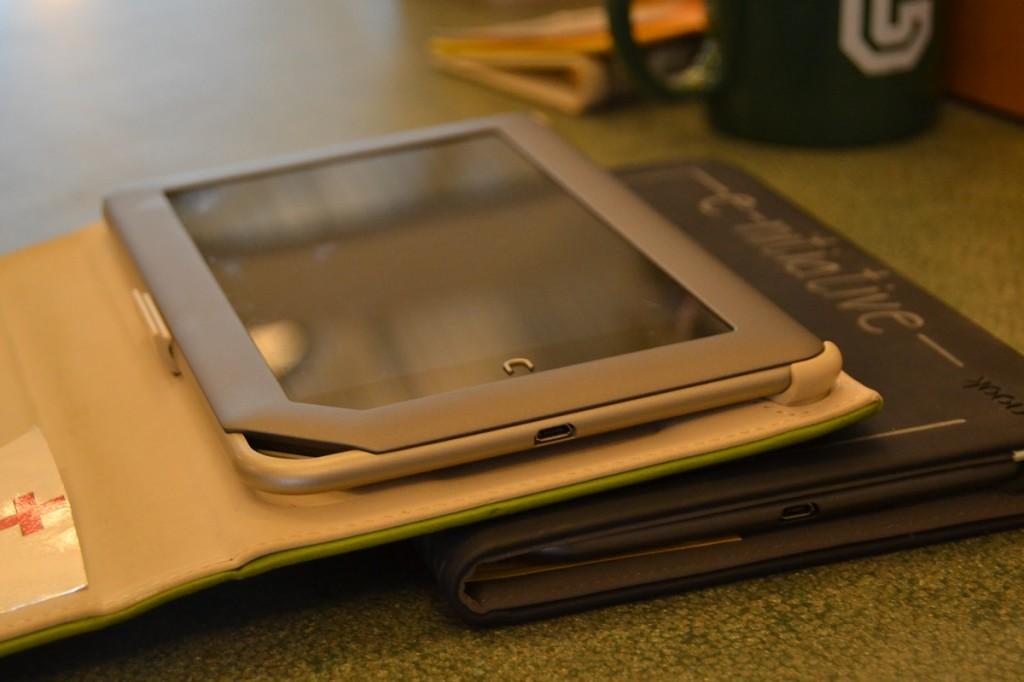E-readers are the future (Editorial)
E-reading devices, such as the Nook or the Kindle, have become increasingly popular.
December 14, 2013
E-books and e-readers have been on the rise. According to Forbes.com, they now account for 23% of the revenue from book publishing. Some readers are happy with this change, but others are not.
There is a certain comfort in physical books that cannot be entirely replaced. While e-readers are nice, the familiar smell and feel of a book cannot be fully replaced by technology.
However, the same tangibility of physical books also provides a drawback. E-books are lightweight and thin, which makes it easier to tote them around. This is especially convenient as they can carry many books within them.
E-books themselves are easier to access, available for online download rather than having to be sought out. They are typically cheaper, and can even be found for free on some websites. The easy access makes them all the more desirable.
Besides fiscal reasons, they’re also environmentally preferable. Electronic books need nothing to be created but words and file space physical books require trees to be cut for wood, so a decrease in the production of them would help the environment.
While physical books aren’t going to become completely obsolete any time soon, the future is with electronic books, and for good reason.
Want more e-books but can’t afford an e-reader? Learn more about the app Readmill in our review here.































































































Amelia Winn • Jan 21, 2014 at 6:36 pm
I hope e-books are a short-lived fad, although I fear otherwise. I think the tangibility of actual books is irreplaceable, and consequently physical books will not be easily eradicated. Yes, carrying around a physical book can be a hassle and inconvenient at times, but having a physical book to read on a bench in the park is totally worth carrying it en route.
Spencer Pechart • Jan 20, 2014 at 10:17 pm
I absolutely refuse to invest in an e-reader. I have grown too attached to my books and I really cannot see myself reading from some electronic gadget. It reminds me too much of Fahrenheit 451 and to be honest, the thought of it terrifies me sometimes.
Alec Di Ruzza • Jan 20, 2014 at 6:52 pm
While an e-reader provides may advantages–a light weight tablet that can store and download multiple books a the tip of your finger, something about a good ole’ fashion books is more appealing to me. When I sit down to read a book, I expect certain things. Like Sam already said, the experience that the book provides the read with, such as the coffee stain on the front cover or the marginal notes left by a past owner make the experience of reading the book all the more personal. While I definitely think that e-readers will become a huge success in this modern age, I don’t think we will ever get to the point where we won’t have books–especially because they are so much more meaningful.
Sam DeAngelo • Jan 13, 2014 at 8:06 pm
Personally, I am more on the side of traditional, hard-copy books. I dont think e-readers provide the reader with the same experience. Something about physically turning the pages and also the smell of new books gives reading extra special characteristics. I also like being able to see how much of the book I’ve read and although e-readers show how many pages are left, it just isn’t the same.